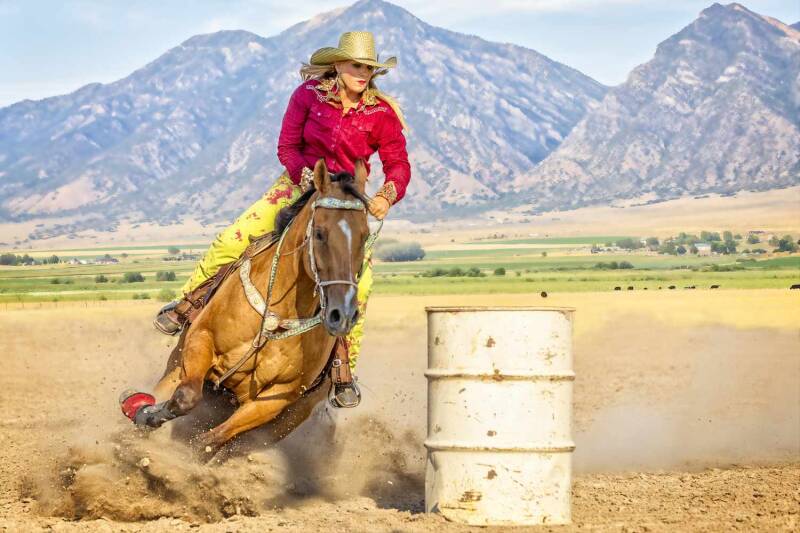Information
Barrel racing is a thrilling display of agility, precision, and raw speed. A tight turn can make or break a rider’s time. Experts say every extra foot taken around a barrel costs roughly 0.1 seconds—enough to mean the difference between a payout and going home empty-handed. Riders focus on slow work drills and rib-softening techniques to get their horses bending smoothly and reacting to subtle cues.
What is the Barrel Racing Pattern?
Barrel racing is a rodeo event where horse and rider race against the clock in a cloverleaf pattern around three barrels. It’s all about speed, precision, and tight turns!


Let’s start with the rules of barrel racing.
The horse and rider enter at full speed, crossing an electronic timer or a start/finish line.
A running start is allowed (no standing start).
Penalties & Disqualifications
5-Second Penalty: Knocking over a barrel.
No Time (Disqualification):
Breaking the pattern (skipping a barrel or incorrect order).
Running past the barrel without attempting a turn.
Falling off the horse.
Timing & Winning
Time is recorded from when the horse crosses the start line until it crosses the finish line.
The fastest clean run (no penalties) wins.
Equipment & Safety
Horse Requirements: Agile, well-trained horses (often Quarter Horses).
Tack: Western saddle, bridle (usually with a bit), and protective leg gear for the horse.
Rider Attire: Cowboy boots, jeans, helmet (optional in some organizations), and a long-sleeve shirt.

Master the Turns
Approach Angle: Don’t cut in too close. Start wide and aim for a smooth arc around the barrel.
Focus Points: Look past the barrel where you want to go, not at it.
Inside Leg Pressure: Apply pressure with your inside leg to support the horse’s body through the turn.
Stay Mentally Focused
Visualize Runs: Mentally run the pattern before riding it.
Stay Calm: A calm rider = a calm horse. Keep your energy focused and positive.
Build Trust with Your Horse
Spend time bonding with groundwork and grooming.
Understand your horse’s body language and preferences.